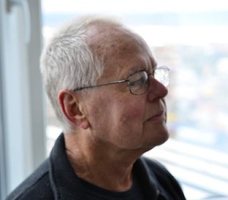
The word “belief” comes from an old English root “lief” which also gave us “love”, and allows us to see a belief as something that we hold dear. To believe in something is then something that we hold dear. There is no relationship between belief and truth. Believing then doesn’t require proof or evidence as truth does. A belief doesn’t require justification, or defence. We can simply say that we belief something and that’s all there is to it.
Religions require belief, for example the Christian religion requires the belief that Jesus was the son of god. If someone doesn’t believe that, then they cannot call themselves Christians. Atheists refuse to acknowledge the existence of god and justify their position by saying there’s no proof of the existence of god.
Wars have been started over religious beliefs that have mistakenly been assumed to relate to truth. If the pope and an Imam try and convince the other of their incorrect appreciation of the truth, they will end up arguing. If the pope and an Imam have a conversation where each speaks of there belief as a belief, they can each say “How interesting” and enjoy a peaceful cup of tea.
Who was it that said that all human dilemmas are caused by the sloppy use of language? Was it Oscar Wilde?
We all have beliefs, and some we are aware of and aware that we want to keep them. There are some things that are dear to us, and we are determined that they continue so. They can cause problems when we require evidence.
There are other beliefs that are transparent to us - they continue outside of our awareness - and while some of these can be useful, others can be potentially catastrophic. There was a time when everyone believed that the world was flat, and translated this into a truth by stating that if ships didn’t return from a long voyage, they must have sailed off the edge. When it was proposed that the earth was spherical, there was not only disbelief, but excommunication! There was a time when birds were said to fly because they had flying souls.
The idea of a flat earth or the flying souls of birds, which once were believed to be true now seem quaint, but the idea that some of our present ideas may in the future appear quaint seems ridiculous.
How many clients are stuck and state their belief that there is no hope for them? How many times have we therapists believed the same, or even been guilty of trying to convince a client that this is so?
On the other extreme, how many clients are on a treadmill of unhelpful beliefs they they don’t need to change anything and all will be well, or how many times have we been guilty of trying to convince a client that they should believe in themselves and their personal appreciation?
In the therapy context then, we can avoid the nonsensical notion of evidence based therapy, which assumes that there is evidence that some therapies are more or less effective, and use this evidence to make a case for the truth of their claim.
We humans know of the power of belief, and the total impotence of using facts to try and change someone’s belief. Try and chance the pope’s belief so he can become a Buddhist. I don’t like your chances.
As therapists we can then explore our beliefs, and instead of looking for evidence to justify the truth or otherwise, we can, instead, ask ourselves about how useful that or that belief is. How important is it to us? Do we want to continue to hold it dear to ourselves? Or can we see if there is something else, something different, something even more dear to us that we can then hold as a belief?
I invite us all to look at any belief that we might happen to have and if it is limiting, what other belief could we replace it with, peacefully, with no conflict or regret, just an expansion of our flexibility in our experiencing and relating.
